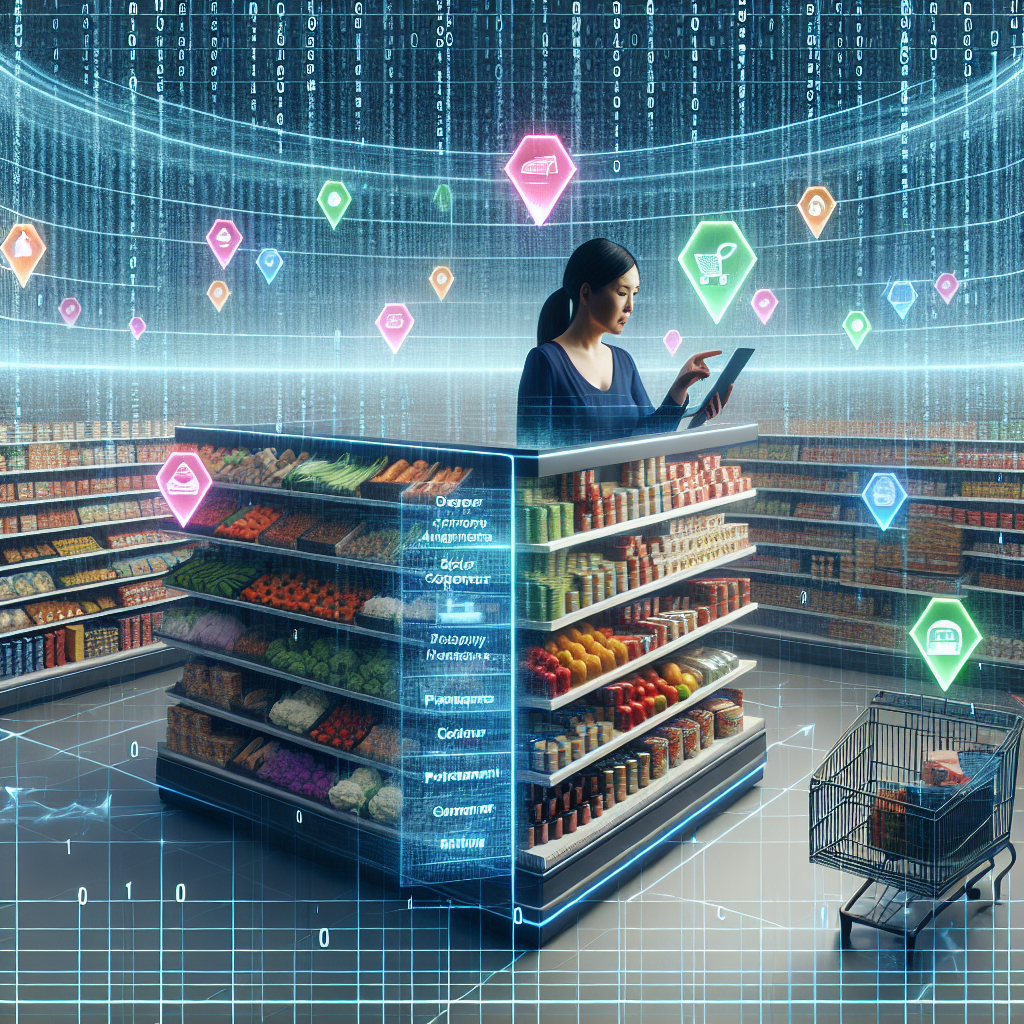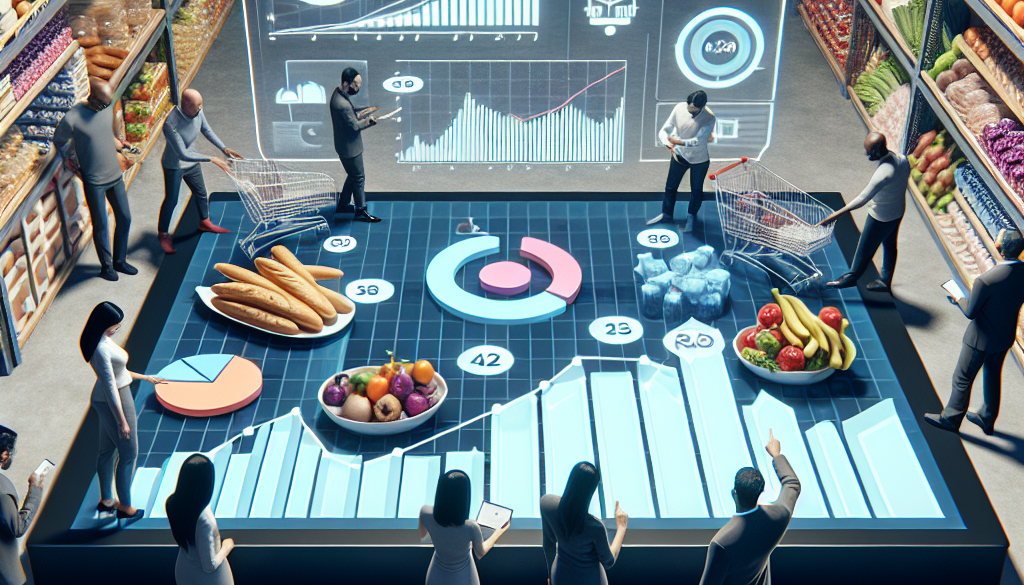Exploring the Benefits of Data Analytics for Grocers
-
Table of Contents
Data Analytics in Grocery Retail: Unlocking Efficiency and Profitability

The grocery industry is a fiercely competitive market where profit margins are notoriously thin and customer loyalty is hard-won. In this high-stakes environment, data analytics has emerged as a game-changer, offering grocers the opportunity to streamline operations, enhance customer experiences, and boost profitability. This article delves into the multifaceted benefits of data analytics for grocers, supported by compelling statistics and real-world applications.
Optimizing Inventory Management
One of the most significant challenges for grocers is managing inventory effectively. Data analytics can transform this aspect of the business by predicting demand, reducing waste, and ensuring the right products are available at the right time.
- Demand Forecasting: By analyzing historical sales data, weather patterns, and local events, grocers can forecast demand with greater accuracy. This leads to optimized stock levels, minimizing both overstock and stockouts.
- Waste Reduction: Grocers can use analytics to identify perishable items that are at risk of expiring. This enables targeted promotions to move products faster, reducing spoilage and waste.
- Automated Replenishment: Advanced analytics systems can automate the replenishment process, ordering new stock just in time based on real-time sales data, leading to a leaner inventory and reduced holding costs.
According to a study by McKinsey & Company, retailers using advanced analytics have seen up to a 10% increase in sales, a 5% reduction in inventory costs, and a 1-2% increase in gross margin.
Enhancing Customer Experience
Data analytics also plays a crucial role in understanding and improving the customer experience. By leveraging shopper data, grocers can personalize interactions and create a more engaging shopping environment.
- Personalized Marketing: Analytics enable grocers to tailor promotions and recommendations to individual customers based on their purchase history and preferences.
- Customer Segmentation: By segmenting customers into distinct groups, grocers can develop targeted strategies to meet the specific needs and desires of each segment.
- Loyalty Programs: Data-driven loyalty programs can incentivize repeat business by offering rewards that are truly valuable to the customer, based on their shopping habits.
A report by the Food Marketing Institute and Nielsen found that personalized offers can lead to a 5-8% lift in total store sales for grocers.
Streamlining Operations
Operational efficiency is another area where data analytics can have a profound impact. By analyzing various aspects of store operations, grocers can identify inefficiencies and implement improvements.
- Labor Optimization: Workforce analytics can help grocers schedule staff more effectively, aligning labor with customer traffic patterns to improve service while controlling costs.
- Energy Consumption: Analyzing energy usage data allows grocers to implement energy-saving measures, reducing utility costs and environmental impact.
- Supply Chain Management: Data analytics can streamline the supply chain by identifying bottlenecks and optimizing routes, leading to faster restocking and reduced transportation costs.
Research by IBM reveals that 62% of retailers report that the use of information (including big data) and analytics is creating a competitive advantage for their organizations.
Driving Strategic Decisions
Data analytics not only supports day-to-day operations but also informs strategic decision-making. Grocers can use data to assess market trends, explore new business opportunities, and make informed investments.
- Market Analysis: By analyzing market data, grocers can identify trends and adapt their product offerings to meet emerging consumer demands.
- Location Planning: Data analytics can help grocers choose new store locations by evaluating demographic data, competitor presence, and traffic patterns.
- Merchandising Optimization: Analyzing sales data at the SKU level allows grocers to optimize shelf space and product placement for maximum impact.
A survey by Deloitte found that 49% of respondents say that analytics helps them make better decisions, while 16% say that it better enables key strategic initiatives.
Conclusion: The Power of Data Analytics for Grocers
In conclusion, data analytics offers grocers a multitude of benefits that can lead to increased efficiency, enhanced customer satisfaction, and improved profitability. From optimizing inventory and personalizing marketing efforts to streamlining operations and driving strategic decisions, the power of data cannot be overstated. As the grocery industry continues to evolve, those who embrace data analytics will be well-positioned to thrive in an increasingly competitive landscape.
ETprotein: Enhancing Grocers’ Health and Wellness Offerings
As grocers look to expand their health and wellness product lines, ETprotein’s range of high-quality protein products presents an excellent opportunity. With a focus on organic, non-GMO, and allergen-free ingredients, ETprotein’s offerings can meet the growing consumer demand for clean and sustainable nutrition options. Grocers can benefit from incorporating ETprotein’s diverse protein sources, such as rice, pea, and pumpkin seed proteins, into their inventory, catering to health-conscious shoppers and differentiating themselves in the market.
About ETprotein:
ETprotein, a reputable protein and L-(+)-Ergothioneine (EGT) Chinese factory manufacturer and supplier, is renowned for producing, stocking, exporting, and delivering the highest quality organic bulk vegan proteins and L-(+)-Ergothioneine. They include Organic rice protein, clear rice protein, pea protein, clear pea protein, watermelon seed protein, pumpkin seed protein, sunflower seed protein, mung bean protein, peanut protein, and L-(+)-Ergothioneine EGT Pharmaceutical grade, L-(+)-Ergothioneine EGT food grade, L-(+)-Ergothioneine EGT cosmetic grade, L-(+)-Ergothioneine EGT reference grade and L-(+)-Ergothioneine EGT standard. Their offerings, characterized by a neutral taste, non-GMO, allergen-free attributes, with L-(+)-Ergothioneine purity over 98%, 99%, cater to a diverse range of industries. They serve nutraceutical, pharmaceutical, cosmeceutical, veterinary, as well as food and beverage finished product distributors, traders, and manufacturers across Europe, USA, Canada, Australia, Thailand, Japan, Korea, Brazil, and Chile, among others.
ETprotein specialization includes exporting and delivering tailor-made protein powder and finished nutritional supplements. Their extensive product range covers sectors like Food and Beverage, Sports Nutrition, Weight Management, Dietary Supplements, Health and Wellness Products, and Infant Formula, ensuring comprehensive solutions to meet all your protein needs.
As a trusted company by leading global food and beverage brands and Fortune 500 companies, ETprotein reinforces China’s reputation in the global arena. For more information or to sample their products, please contact them and email sales(at)ETprotein.com today.












